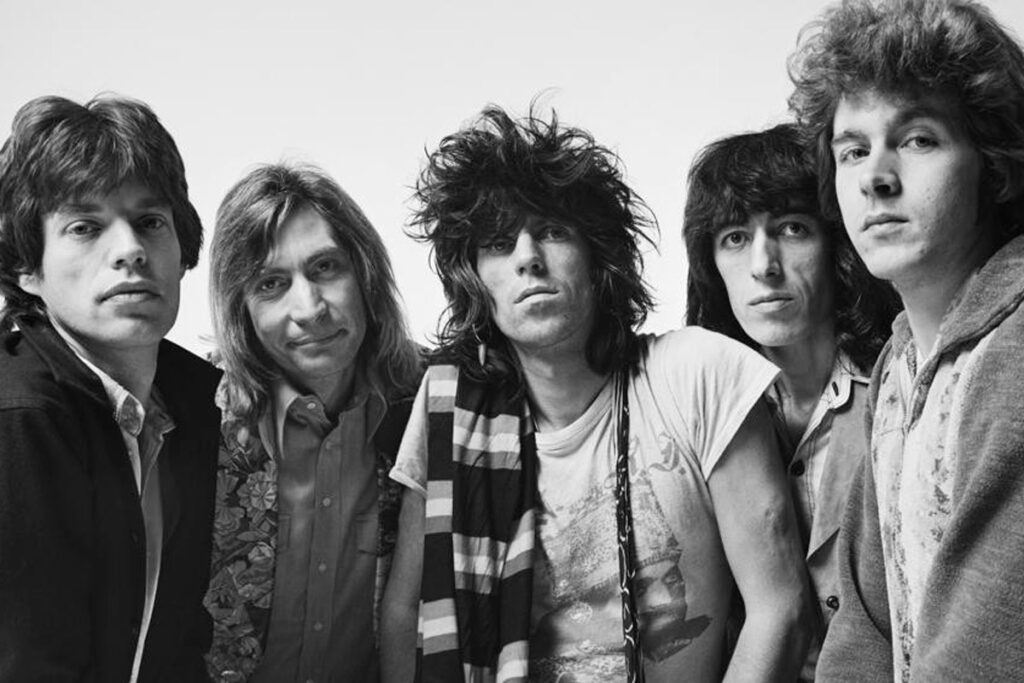The Rolling Stones and the Timeless Anthem: (I Can’t Get No) Satisfaction
Few songs in the history of rock ‘n’ roll capture the spirit of an era quite like “(I Can’t Get No) Satisfaction” by The Rolling Stones. Released in 1965, this iconic track not only propelled the band to international stardom but also became a defining anthem of the 1960s, embodying the restlessness and rebellion of youth culture at the time.
The inception of “(I Can’t Get No) Satisfaction” is the stuff of rock legend. Keith Richards, the Stones’ lead guitarist, famously conceived the song’s signature riff in a hotel room in Clearwater, Florida. According to Richards, he awoke in the middle of the night, recorded the riff and the phrase “I can’t get no satisfaction” on a tape recorder, and promptly fell back asleep. The next morning, he listened to the tape, which consisted of the now-famous riff followed by 40 minutes of snoring.
Richards initially doubted the riff’s potential, believing it to be too simplistic. However, Mick Jagger saw its promise and quickly set about writing the lyrics. The song’s verses express frustration with commercialism, media, and the pressures of modern life, resonating deeply with a generation questioning the status quo.

“Satisfaction” was recorded at RCA Studios in Hollywood, California, with the assistance of producer Andrew Loog Oldham. The distinctive fuzz-guitar sound, which became a hallmark of the track, was created using a Gibson Maestro Fuzz-Tone pedal, a relatively new piece of equipment at the time. This gritty, distorted sound was unlike anything heard in popular music, giving the song a raw, edgy feel that set it apart from its contemporaries.
Upon its release in the United States in June 1965, “(I Can’t Get No) Satisfaction” quickly climbed to the top of the charts, securing the number one spot on the Billboard Hot 100. The song’s success was mirrored in the UK, where it also reached number one, despite initial reluctance from the BBC to play it due to its suggestive lyrics.
“(I Can’t Get No) Satisfaction” was more than just a hit single; it became a cultural phenomenon. Its lyrics, expressing a sense of dissatisfaction and yearning, struck a chord with the burgeoning counterculture movement. The song’s defiant tone and raw energy captured the mood of a generation eager to break free from the constraints of conservative post-war society.
The song’s impact extended beyond music, influencing fashion, attitudes, and even political discourse. The Rolling Stones themselves became symbols of youthful rebellion and nonconformity, with their bad-boy image contrasting sharply with the more polished personas of other British Invasion bands like The Beatles.
Nearly six decades after its release, “(I Can’t Get No) Satisfaction” remains a cornerstone of rock music. It has been covered by countless artists, from Otis Redding to Britney Spears, each bringing their unique interpretation to the classic. The song has also been featured in numerous films, television shows, and commercials, underscoring its enduring relevance.
The Rolling Stones continue to perform “Satisfaction” in concert, where it invariably receives an ecstatic response from audiences of all ages. The song’s riff, instantly recognizable and eternally electrifying, serves as a reminder of the band’s indelible impact on the music world.
In 2004, Rolling Stone magazine ranked “(I Can’t Get No) Satisfaction” second on its list of “The 500 Greatest Songs of All Time,” cementing its place in the pantheon of rock legends. As both a product of its time and a timeless anthem, “Satisfaction” exemplifies the power of music to capture and convey the complexities of the human experience.
“(I Can’t Get No) Satisfaction” by The Rolling Stones is more than just a song; it is a cultural touchstone that encapsulates the spirit of an era. Its creation, marked by serendipity and innovation, its immediate success, and its lasting legacy all contribute to its status as one of the greatest rock songs ever recorded. For fans of The Rolling Stones and music lovers around the world, “Satisfaction” is a testament to the enduring power of rock ‘n’ roll.